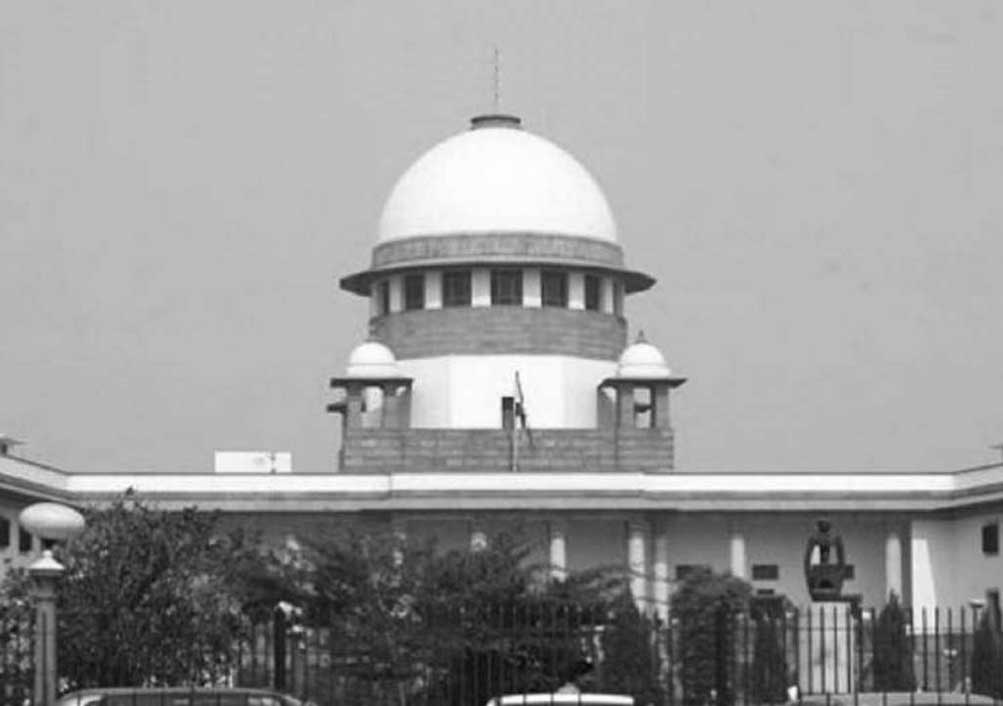In Civil Appeal No. 4296 of 2023 -SC- Supreme Court issues stringent directions to Trial Courts & High Courts for expeditious disposal of cases; criticizes over-tolerant nature of courts in granting adjournments
Justice S. Ravindra Bhat & Justice Aravind Kumar [20-10-2023]

Read Order: Yashpal Jain v. Sushila Devi & Others
Chahat Varma
New Delhi, October 23, 2023: In an important judgment, the Supreme Court has taken a firm stand against the inordinate delays plaguing civil trials in the country. The Court observed that the 41-year pendency of a suit before it was a stark reminder of the ‘functioning of certain civil courts and the role played by stakeholders in causing delays, whether directly or indirectly’.
At the outset, the division bench of Justice S. Ravindra Bhat and Justice Aravind Kumar noted that even after 41 years, the parties involved in the present case were still embroiled in disputes about who should be the legal representative of the sole plaintiff. This situation exemplified a classic case where the legal process's inordinate delays had left litigants in the dark, leading to disillusionment with the judicial system. The slow progress and the use of dilatory tactics by the parties had prevented the case from reaching a logical conclusion, highlighting the challenges that prolonged legal proceedings can pose to the litigant public.
The bench identified several key factors contributing to the delay in civil trials, such as lack of strict adherence to the Civil Procedure Code, the misuse of court processes, lengthy and protracted evidence and arguments, failure to utilize CPC provisions like Order X for efficient case management, inadequate measures to deter frivolous litigation through realistic cost awards, insufficient training and orientation for judicial officers and lawyers, a lack of case prioritization, and deficiencies in accountability and transparency within the legal system. These factors collectively lead to prolonged legal proceedings, potentially causing disillusionment among litigants due to delayed justice delivery.
The bench also criticized the "over-tolerant nature of the courts below while extending their olive branch to grant adjournment at the drop of the hat and thereby bringing the entire judicial process to a grinding halt."
The bench strongly emphasized that it was imperative for all trial court presiding officers nationwide to rigorously implement the prescribed time schedule outlined in sub-rule (1) of Rule (1) of Order VIII in its true essence. This should be done without needlessly extending the time limits, especially when the circumstances of a particular case do not justify such extensions. The bench pointed out that despite the clarity of the procedure laid out in Order XVII of the CPC, specifically concerning adjournments, it appeared that all stakeholders had overlooked these provisions.
While the bench acknowledged the importance of framing rules, it emphasized that effective implementation of these rules was paramount. High Courts were urged to take responsibility for ensuring the rules' execution.
The bench highlighted that one of the most significant contributors to administrative and structural delays in litigation was judicial delay. The National Judicial Data Grid provided alarming figures regarding the role of judicial delay in the backlog of cases.
The bench made a profound observation that while our Judiciary is the cornerstone of our democratic system and a beacon of hope for those seeking remedy, the spectre of delay and backlog has cast a long shadow upon the dispensation of justice. In a realm where justice should be precise and balanced, the accumulation of pending cases and prolonged delays has reached a disconcerting crescendo.
The bench emphasized that every pending case represents a soul in limbo, yearning for closure and justice. Every delay in the legal process is a challenge to the fundamental principles of our legal system. Regrettably, the notion that justice delayed is justice denied is not a mere saying but an undeniable reality.
The bench said, “The time for procrastination is long past, for justice cannot be a casualty of bureaucratic inefficiency. We must act now, for the hour is late, and the call for justice is unwavering.”
Thus, in order to address the problem of delays, the court issued a series of directions to the High Courts, and issued directions to the trial courts to ensure speedy justice is delivered. These directions included ensuring timely execution of summons, adherence to prescribed time limits for filing written statements, encouraging parties to opt for alternative dispute resolution, framing issues promptly, scheduling trials in consultation with advocates, and maintaining diaries to manage caseloads efficiently.
The court also emphasized the need to educate counsels on relevant legal provisions and to enforce cost payments to discourage unnecessary adjournments. Additionally, it mandated the immediate hearing of oral arguments and timely judgment pronouncement. Furthermore, the court called for the regular reporting of cases pending for over five years to a review committee, which would meet regularly to monitor and implement corrective measures.
Sign up for our weekly newsletter to stay up to date on our product, events featured blog, special offer and all of the exciting things that take place here at Legitquest.




Add a Comment